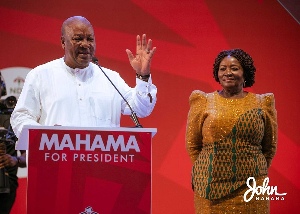Mr Tetteh Hormeku, Head of Programmes at Third World Network-Africa, has stated that the revised Ghana Investment Promotion Bill lacks the necessary incentives to encourage and support Ghanaian producers.
Speaking at a two-day National Economic Policy seminar organised by the Economic Justice Network in Accra, Mr Hormeku said the provisions in the revised Bill were little changes from the previous one and in most instances did not give any relief for the domestic producer.
Parliament in July passed the amended Ghana Investment Promotion Centre (GIPC) Bill 2013, revising the country’s investment laws to reflect changing economic dynamics to guarantee optimum business opportunities and incentives for Ghanaian enterprises.
The revised GIPC Bill, which is awaiting presidential assent, reserves the sale of goods or provision of services in markets, petty trading, hawking or selling of goods in stalls to Ghanaians.
Foreigners cannot operate taxi or car hire services in an enterprise that has a fleet of not more than 25 vehicles.
They cannot operate beauty salons or barbers shops and are prohibited from printing recharge scratch cards for the use of subscribers of mobile telecommunications services.
However, Mr Hormeku said these provisions were not enough and that government had lost the opportunity to use the revision of the Bill as a strategy to help transform the economy, balance the role of the domestic investor vis-a-vis the foreign ones and formulate a broader plan for the structural development of the economy.
He said despite government’s effort to establish the Ghana Investment Promotion Centre as the agency responsible for the encouragement and promotion of investments, the Bill took away the policy space that government could use to help Ghanaian producers.
For example, Mr Hormeku said, the revised Bill failed to enforce the right to discriminate in favour of Ghanaians producers by taking away the proposal to ensure 30 per cent Ghanaian participation in joint ventures.
He expressed disappointment that strategic exceptions that could help the country were taken out because of the pressures from donors.
Responding Mr Haruna Iddrisu, Minister of Trade and Industry, said the revision was targeted to ensure that the country become a friendly destination to attract the needed foreign direct investment to improve basic infrastructure.
He said there was no limitation placed on local investors and that those with the resources to invest could count on government’s support to deliver on their projects.
The two-day meeting touched on economic development and employment in agriculture and industry, the European Union 2014 Deadline and emerging trends in the EPAs and government initiatives on trade and development, among others.
Business News of Friday, 13 September 2013
Source: GNA












